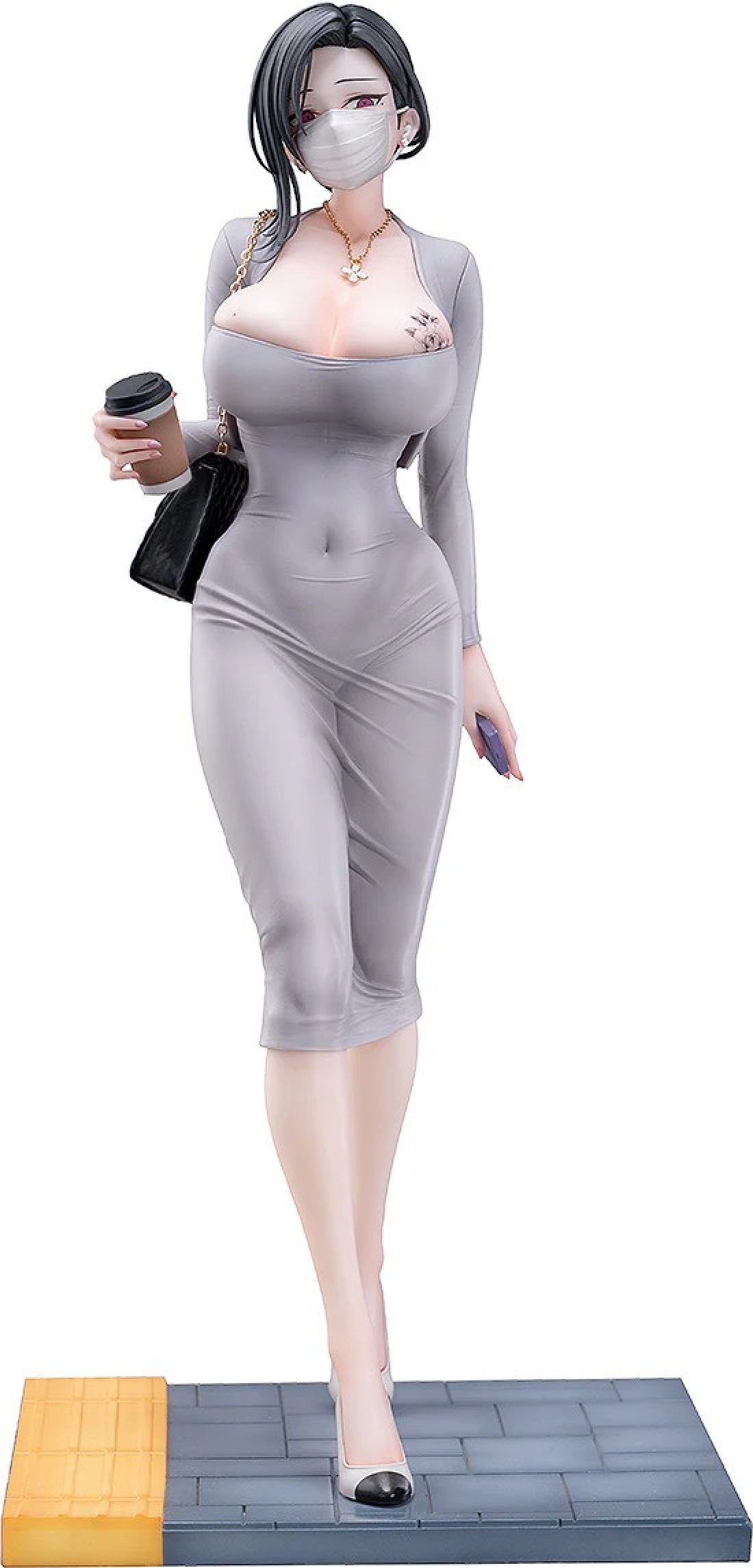In South Korea, dolls modelled on married women spark complaints about ‘over-sexualised’ image
The ‘Dongtan Missy’ doll and similar ones are clad in provocative dresses with plunging cleavages, triggering calls to stop the sale of such figures

A doll based on a stereotype of married women from a South Korean city has resulted in numerous complaints regarding its over-sexualised image and demands that it be taken off the market.
The doll, which has been selling for about 90,000 won (US$65), is based on the “Dongtan Missy” caricature made famous in memes that have themselves been criticised for sexually objectifying women.
A Dongtan Missy refers to an attractive young married woman living in the up-and-coming Dongtan town in Hwaseong, Gyeonggi province.
The Missy – a word likely derived from the English “missus” – is stereotyped as a voluptuous woman wearing tight or revealing outfits in the memes.
Dolls sold as “Dongtan Figures”, as well as other similar ones called “Misaiden” or “Mi-Rook”, are all clad in provocative dresses with plunging cleavages and clingy silhouettes, according to the Maeil Business Newspaper.
Since the Dongtan Missy dolls appeared in January, internet users have been filing complaints with Hwaseong city and local police stations asking them to stop the sale of such figures over concerns that they are sexually commercialising women and instilling a negative image of the region.

The municipal council received 100 complaints about the doll and started a legal review, the Yonhap news agency reported. But it found that legal recourse would be difficult because defamation or sexual harassment laws did not apply in this case.
“Supreme Court rulings state that insults consist of ‘contentious expressions that can damage the social reputation of a certain individual or organisation, and thus the victim must be specified,’ which means [the dolls] do not constitute the crime of insult. Also, there is no specific victim, and sexual harassment does not apply,” it said, according to Yonhap.
However, the council said Dongtan residents who felt they were being directly victimised because of the dolls could apply for legal and administrative aid, The Korea Herald reported.
Dongtan, a planned township with a mix of commercial, residential and industrial areas, underwent rapid development in the 2000s. According to The Korea Herald, the average age of its residents is 34.7, or almost 10 years younger than the national average of 44.2 as of 2023 – a youthful demographic which probably started the Dongtan Missy memes.
The controversy has prompted some shopping centres selling the figurines to remove “Dongtan” from the product name. As of Tuesday, the dolls were still being sold as Dongtan figures in many malls, according to the Maeil Business Newspaper.